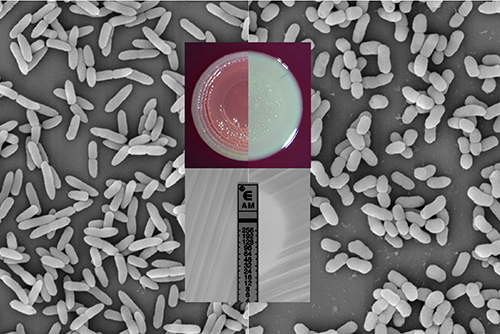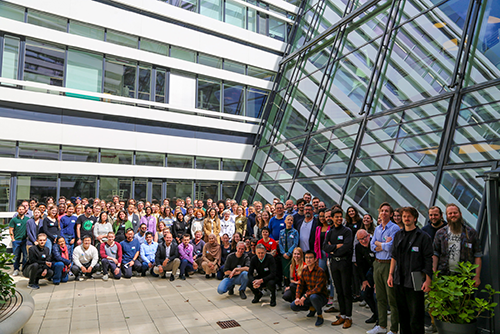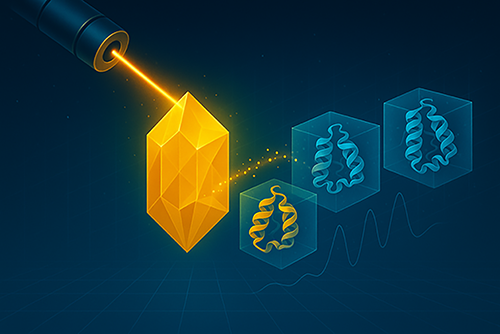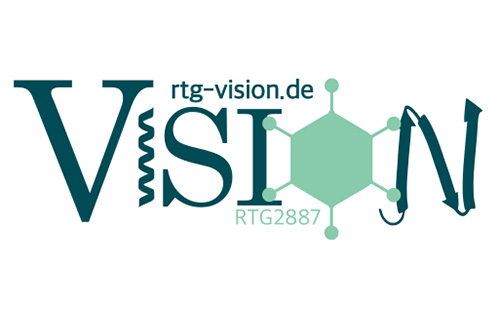Human Adenovirus: Promising Target for Treatment Identified
In a collaborative study, researchers from the Leibniz Institute for Experimental Virology (HPI), including CSSB group leader Jens Bosse (MHH, HPI), used a 3D organoid model of the intestine to investigate how natural killer cells recognize and kill intestinal epithelial cells infected with human adenoviruses (HAdV). In doing so, they succeeded in identifying a new target that may pose a candidate for immune therapies for children with severe adenovirus infections after stem cell transplantation. The results have now been published in the renowned journal "Science Immunology".
Human adenoviruses are a major cause of disease in children and immunocompromised people, especially after allogeneic hematopoietic stem cell transplantation. Effective therapies against HAdV infections without severe side effects are currently not available. Against this background, researchers from the HPI research departments "Virus Immunology" and "Viral Transformation" have now used a 3D organoid model of the intestine to investigate how natural killer cells recognize and kill HAdV-infected intestinal epithelial cells.
It was shown that a cascade is initiated in infected intestinal cells that enables improved recognition and killing by KIR3DS1+ natural killer cells. In addition, the researchers discovered that children who received donor cells during stem cell transplantation with the receptor KIR3DS1+/HLA-Bw4+ are better protected against a severe course of HAdV infection.
"Intestinal organoids enable the study of interactions between human immune cells and tissue cells in inflammation and infection in the context of personalized medicine. Our results suggest that the KIR3DS1/HLA-F axis could be a promising target for the treatment of severe HAdV reactivation after allogeneic hematopoietic stem cell transplantation in children", explains Dr. Dr. Madeleine Altfeld-Bunders from the HPI research department of Virus Immunology and the III Medical Clinic of the University Medical Center Hamburg-Eppendorf.
This HPI-led study involved numerous scientific institutions, including the University Utrecht and its associated University Medical Center (UMC), the University Medical Center Hamburg-Eppendorf (UKE), the Princess Máxima Center for pediatric oncology, the German Center for Infection Research (DZIF), and Altona Children's Hospital.
Source:
Johannes M. Jung, Wilhelm Ching, Martin E. Baumdick, Helga Hofmann-Sieber, Jens B. Bosse, Tobias Koyro, Kimberly J. Möller, Lucy Wegner, Annika Niehrs, Kristina Russu, Mareike Ohms, Wenli Zhang, Anja Ehrhardt, Kevin Duisters, Eric Spierings, Angelique Hölzemer, Christian Körner, Suze A. Jansen, Sven Peine, Ingo Königs, Marc Lütgehetmann, Daniel Perez, Konrad Reinshagen, Caroline A. Lindemans, Marcus Altfeld, Mirjam Belderbos, Thomas Dobner, and Madeleine J. Bunders (2021). KIR3DS1 directs NK cell-mediated protection against human adenovirus infections. Science Immunology, September 17, 2021.
Original News Story:
*Teaser Image: Linda Franken



